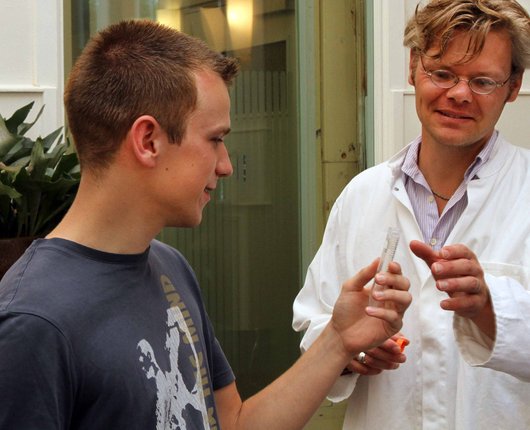Mouth to mouth
Kissing is never just between the two of you.
 The invisible world
The invisible world
Kissing is never just between the two of you.
Your mouth is a hive of activity. Approximately ten billion bacteria, divided among 700 different species, live in your mouth. They live alongside a multitude of fungi, archaea and viruses. Most of them are really useful as they help to keep your mouth healthy. The precise composition of this life inside the mouth differs from person to person: it is unique, like a fingerprint. However, the more you French kiss the same person, the more similar the collection of bacteria in the saliva in your mouths will become. That may well, though, not just be caused by kissing.
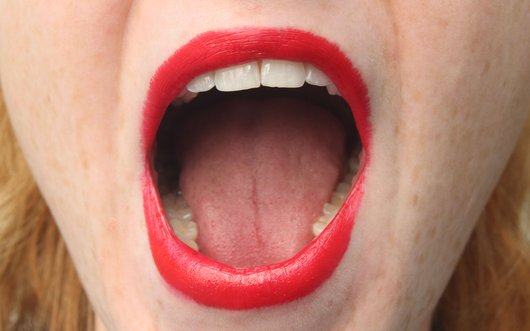
Some bacteria are found in everyone’s mouth, such as Streptococcus, Actinomyces and Gemella. Lots of other species, however, are less common. Intimate kissing exposes you to a gigantic number of bacteria and other micro-organisms. In just 10 seconds, you will exchange about 80 million of them. Research carried out by Professor Remco Kort (TNO) for Micropia made that clear. Specimens from the saliva and tongues of 21 couples also showed that the collection of microbes in the mouth of partners is far more similar than that of two randomly chosen people. That is not just because of French kissing but also because of factors such as sharing the same food and toothpaste.
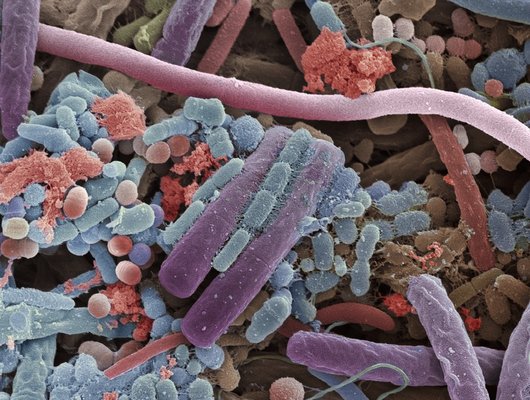
Microbes that end up in your mouth have to stick there, otherwise they will be swallowed. Being swallowed would mean their almost certain death because there are very few microbes which can survive your gastric juices. The overwhelming majority of the microbes you receive during a French kiss will be swallowed within a couple of hours. Some species, though, are well equipped to stick inside your mouth. They have developed all kinds of techniques to do this. Some produce proteins, for example, which allow them to stick very well to your teeth or tongue. Others are very good at attaching themselves to the bacteria which have formed a first layer.
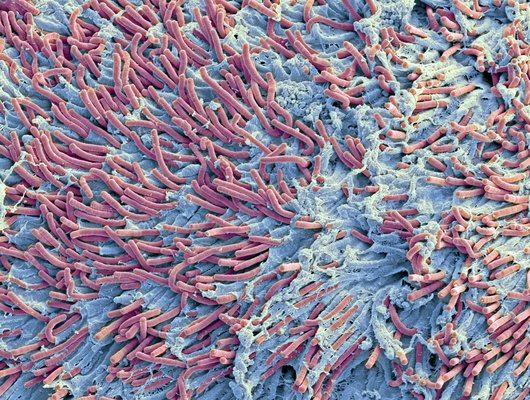
Some believe that intimate kissing developed from mothers chewing food and then giving it to their babies. The theory is far from proven. But why do we French kiss anyway? Opinions are divided on that subject too. People get sexually aroused from kissing, that is certain, and it strengthens the bond with the partner. It is highly probable that bacteria and viruses play a major role in what happens during intimate kissing. A French kiss is an evaluation of the mouth flora of your partner, an important criterion in your choice of partner. Who has never been put off after a first kiss? But French kissing also boosts your resistance, because the wider the biodiversity in your mouth is the better equipped it is to keep unwelcome visitors at bay. Another hypothesis is that French kissing allows women to build up resistance to possible infections during pregnancy. In a nutshell, a helping hand which can often aid good health.

Kissing is often healthy, but not always. Besides all those microbes in your mouth that you need, there are also a few you should avoid. You can catch glandular fever, for example, from French kissing. It is a viral infection caused by the Epstein–Barr virus, a herpes virus. It is known colloquially as kissing disease due to the fact that it is often probably spread by saliva. Kissing someone with cold sores is also not an advisable thing to do. The herpes simplex virus which causes cold sores is highly infectious. About 40% of people aged 15 and over are carriers of the virus although only 20-40% of them will show any symptoms from time to time.
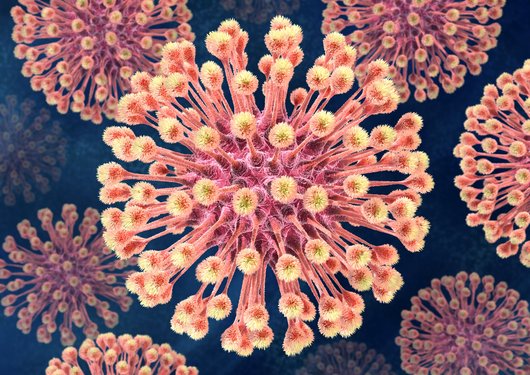
French kissing is highly usual in over 90% of known human societies. So nearly everyone does it. Man appears to be the only animal to have acquired the habit. Various other species, such as fish, birds and monkeys, do have mouth-to-mouth contact but this is mostly rather superficial skin contact or is to do with sharing food. Animals also exchange microbes in the process just as in other kinds of physical contact. Exchanges also take place between humans and animals for instance during petting. This is why you will have more microbes in common with your pet than with other animals of the same species. This is also a good thing. But think twice before giving a kiss to your parrot or parakeet: your mouth is full of bacteria which can harm these birds.

It’s all very well to know that the collection of microbes in your mouth are like your partner’s, but of what use is the information? Remco Kort sees it as a piece of a major puzzle. “We live in symbiosis with our 100,000 billion microbes. They complement us. Without microbes in our intestine, we could not do things like produce vitamins or break down our food. Microbes play an essential role in our body. It is therefore important to research which people carry which micro-organisms, how your microbiome is formed, what causes it to change and how you can influence it. For example, by kissing. When we know the answers to those questions and to why some micro-organisms can make your body their home, we will have the key to the solution of a great many medical problems.”
